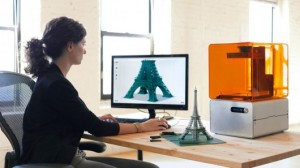
The DEEP Centre is launching an ambitious new study to examine the impact of 3D printing on product innovation and manufacturing. The study will be conducted in partnership with Paul Barter of the York University Schulich School of Business.
Until recently, only large companies had the manufacturing muscle to bring physical goods to the mass market. But as the machinery of factory production become available to individuals, anyone with a good idea and some ingenuity can design and sell goods globally without a physical plant or even inventory.
3D printing, in particular, looks set to offer significant new opportunities for mass customization and could revolutionize how we manufacture everything from housing to fashion to medical implants and prosthetics. What new growth industries and business models will a nascent era of 3D printing generate? How can policymakers promote innovation and experimentation with 3D printing capabilities in their jurisdictions? Will the ability to effortlessly copy and modify physical designs raise significant intellectual property issues? Will 3D printing further accelerate the loss of manufacturing jobs or can this novel technology be exploited to stimulate domestic employment growth?